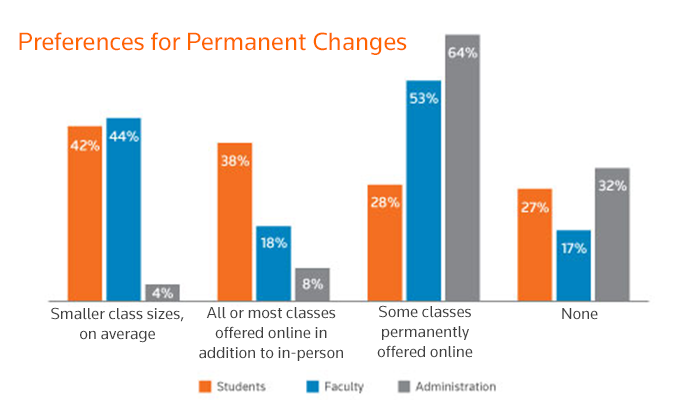Thomson Reuters Survey Reveals How the Pandemic Is Shaping Legal Education

Law students understand that faculty are doing the best they can in a difficult situation, yet they are concerned about the value of the legal education they are receiving online. This is among the findings of a Thomson Reuters survey, Law Schools and the Global Pandemic, of nearly 3,000 law school students, faculty and administrators.
Conducted in August – as 89 percent of students surveyed were returning to school entirely online – the study found a high level of alignment and camaraderie among students, faculty and administrators as they all struggled with technology and the unpredictability of the pandemic. The survey showed students, faculty and administrators agree on their biggest challenges: engagement with classwork, technology access, and learning and teaching environments.
Yet findings emphasized how law schools have struggled to pivot, with 43 percent of students expressing concern about their ability to learn critical information remotely. In addition, 34 percent of students gave low scores to the general quality of legal technology training they were receiving.
Overall, 62 percent of students identified staying engaged with online classes as their top challenge. Their concern resonated with faculty and administrators, with 42 of faculty and 52 percent of administrators ranking student engagement as a top challenge.
Students rated their learning environment as their second-biggest challenge. Focusing on academics without access to classrooms and libraries was rated as challenging by 53 percent of students, and 33 percent of faculty also rated learning and teaching environments as challenging.
Survey findings also noted some disconnects between administrators and faculty and students.
More than half (52 percent) of students cited the inability to influence decision-making as challenging, and faculty echoed their concern, with 26 percent frustrated by their inability to influence the administration. Yet their concern was not shared by administrators. This finding points to some unexpected opportunities uncovered by the survey.
Findings highlighted how the accelerated acceptance of online instruction presents opportunities for permanent changes in legal education. The survey showed three areas – improving communication with students, reconsidering online learning as an opportunity and reevaluating cost structures – where law schools can build on the work they’ve done during the pandemic to provide a model of law school education that better prepares law students to compete in the legal market of the future.
For more insights on how the pandemic is changing the face of legal education, download the report.